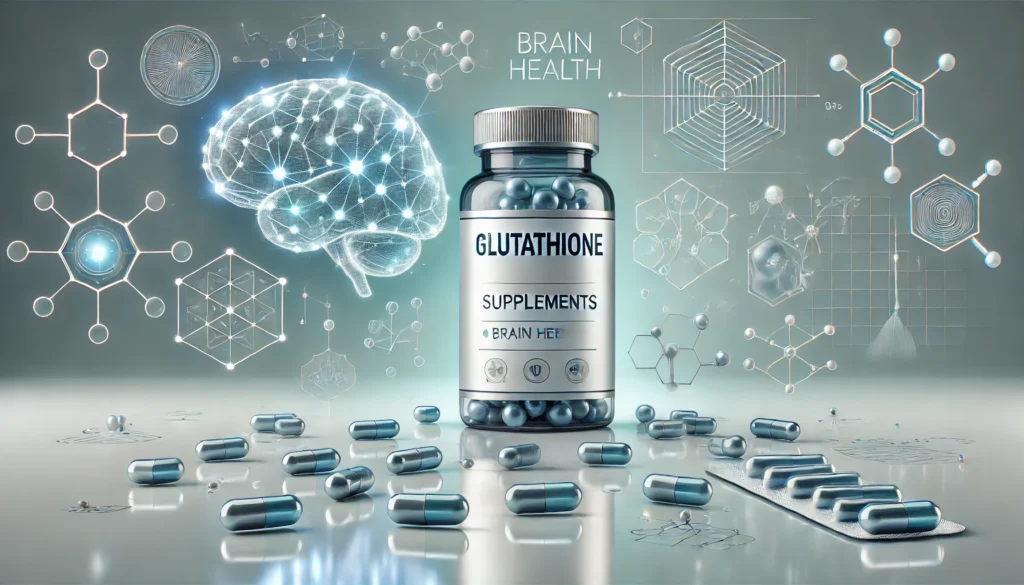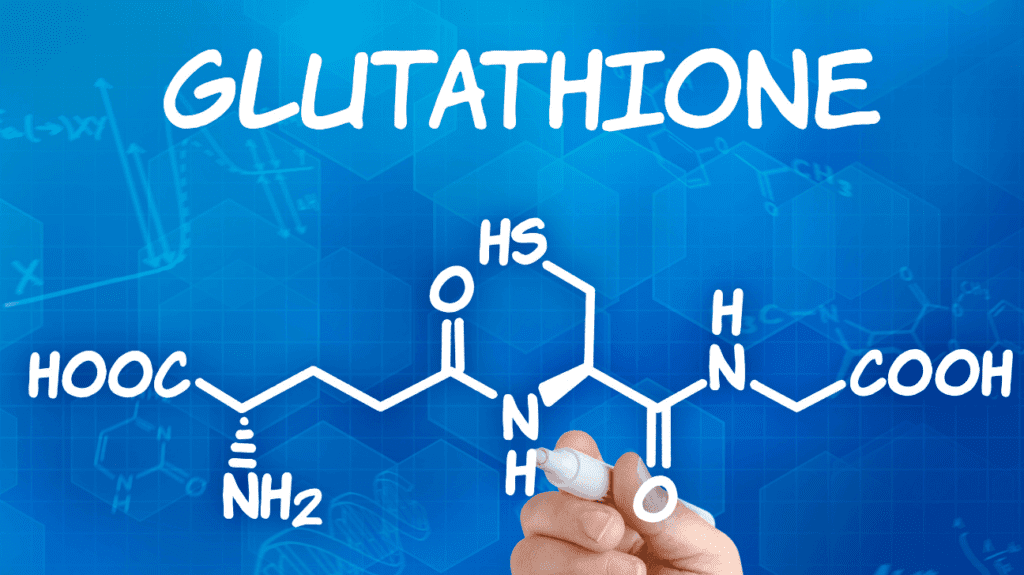Glutathione is a powerful antioxidant found in every cell of the human body, playing a pivotal role in cellular metabolism and detoxification processes. As a tripeptide composed of three amino acids—glutamine, cysteine, and glycine—glutathione is critical for maintaining cellular health, combating oxidative stress, and supporting immune function. Recent interest has emerged regarding its potential as a nootropic supplement, given its influence on cognitive function and overall brain health. This article will delve into the chemistry, physiological mechanisms, potential nootropic benefits, dosing guidelines, side effects, drug interactions, and considerations for the safe supplementation of glutathione.
You May Also Like:
Sources of Glutathione
Glutathione is synthesized endogenously in the body from its constituent amino acids, but certain dietary sources can enhance its levels. Foods rich in glutathione precursors include:
- Cruciferous Vegetables: Broccoli, Brussels sprouts, kale, and cauliflower are high in sulfur-containing compounds that promote glutathione synthesis.
- Allium Vegetables: Garlic and onions contain sulfur compounds that can help elevate glutathione levels.
- Fruits: Avocados, watermelon, and oranges are not only nutritious but also contribute to glutathione production due to their antioxidant properties.
- Meat and Fish: Grass-fed beef, poultry, and certain types of fish provide the amino acids needed for glutathione synthesis.
- Nuts and Seeds: Walnuts and sunflower seeds offer a good source of cysteine, one of the critical amino acids in glutathione production.
While dietary sources are beneficial, they may not provide sufficient amounts of glutathione for therapeutic effects, leading many individuals to consider supplementation.

Chemistry of Glutathione
Chemically, glutathione (GSH) is a tripeptide formed by the condensation of glutamic acid, cysteine, and glycine. Its structure consists of a gamma-peptide bond between the glutamic acid and cysteine, making it unique among peptides. The sulfhydryl (–SH) group in cysteine gives glutathione its reducing capacity, allowing it to act as an effective antioxidant by donating electrons to neutralize reactive oxygen species (ROS).
Glutathione exists in two forms: the reduced form (GSH), which is active and involved in detoxification and antioxidant processes, and the oxidized form (GSSG), which is inactive and must be recycled back to GSH through the action of enzymes like glutathione reductase. The balance between these two forms is critical for maintaining cellular health and function, as a depletion of GSH can lead to oxidative stress and cellular dysfunction.
Physiological Mechanisms of Glutathione in the Body and Brain
Glutathione plays several vital roles in the body, particularly in detoxification, antioxidant defense, and cellular signaling.
- Antioxidant Defense: Glutathione acts as a primary antioxidant, scavenging free radicals and preventing oxidative damage to cells. In the brain, where oxygen consumption is high, and cells are particularly vulnerable to oxidative stress, glutathione helps protect against neurodegeneration.
- Detoxification: Glutathione conjugates with toxins, heavy metals, and other harmful substances, facilitating their excretion from the body. This process is crucial for liver health, where glutathione levels are particularly high and play a vital role in the detoxification of harmful compounds.
- Immune Function: Glutathione supports immune system function by maintaining the integrity and function of immune cells. It regulates the proliferation and activation of lymphocytes, enhancing the body’s ability to respond to pathogens.
- Mitochondrial Function: Glutathione is essential for mitochondrial health, as it helps maintain the redox balance within mitochondria, thereby supporting ATP production and cellular energy metabolism.
- Neurotransmitter Synthesis: Glutathione influences the synthesis and release of neurotransmitters, including dopamine and serotonin, which are crucial for mood regulation and cognitive function. By modulating these pathways, glutathione can impact mental clarity, focus, and overall cognitive performance.

Nootropic Benefits of Glutathione
Glutathione, a powerful antioxidant found throughout the body, plays a critical role in brain health and function, making it an intriguing candidate for nootropic benefits. Its multifaceted roles contribute significantly to cognitive performance, emotional well-being, and overall mental clarity. Here’s a closer look at how glutathione can support brain health:
- Cognitive Enhancement: One of the primary benefits of glutathione is its ability to protect neurons from oxidative stress, a condition that can impair cognitive function and contribute to age-related decline. Oxidative stress occurs when there is an imbalance between free radicals and antioxidants in the body, leading to cellular damage. Research suggests that maintaining optimal levels of glutathione may enhance cognitive function by supporting memory, learning, and overall mental clarity. For instance, studies have shown that individuals with higher glutathione levels often exhibit better cognitive performance, particularly in tasks requiring memory and focus. This enhancement is particularly important as we age, as cognitive decline is a common concern for many.
- Neuroprotection: Glutathione is also known for its neuroprotective properties. Research indicates that it can help shield the brain against neurodegenerative diseases such as Alzheimer’s and Parkinson’s. These conditions are characterized by the progressive degeneration of neurons, leading to severe cognitive and motor impairments. Glutathione’s potent antioxidant properties can slow the progression of these diseases by reducing oxidative damage to neurons. In laboratory studies, glutathione has been shown to preserve neuronal integrity and functionality, suggesting that it could be a vital component in strategies aimed at preventing or managing neurodegenerative diseases.
- Mood Regulation: The influence of glutathione extends beyond cognitive function to include emotional health. Its role in neurotransmitter synthesis implies that it can contribute to mood stabilization and overall emotional well-being. Neurotransmitters, such as serotonin and dopamine, are essential for regulating mood, and glutathione plays a part in their production. Some studies have found correlations between low levels of glutathione and various mood disorders, including depression and anxiety. This connection indicates that maintaining adequate glutathione levels might help support mental health and emotional resilience, potentially offering a natural approach to managing mood-related issues.
- Stress Resilience: In addition to its cognitive and emotional benefits, glutathione plays a critical role in managing the body’s response to stress. During periods of high stress, the body experiences an increase in oxidative damage, which can impair cognitive function and emotional stability. Glutathione helps mitigate this oxidative damage, enabling the brain to maintain its functionality even under pressure. By reducing the harmful effects of stress on the brain, glutathione may help individuals better cope with stressors, enhancing overall resilience.
- Potential as a Nootropic Supplement: Given these benefits, glutathione has garnered attention as a potential nootropic supplement. By enhancing cognitive performance, providing neuroprotection, regulating mood, and improving stress resilience, glutathione could offer a comprehensive approach to supporting brain health. While more research is needed to fully understand its mechanisms and optimal dosing, the current findings suggest that glutathione may be a valuable addition to the nootropic landscape.

Dosage and Supplementation Guidelines
When considering glutathione supplementation, it is essential to adhere to recommended dosages for safety and efficacy:
- General Nootropic Dosage: Common supplemental dosages of glutathione range from 250 to 1,000 mg per day. Lower doses may be beneficial for general health, while higher doses may be used therapeutically for specific conditions or to enhance cognitive performance.
- Supplement Forms: Glutathione supplements are available in various forms, including oral capsules, liposomal formulations, and injectable forms. Liposomal glutathione has gained popularity due to its enhanced bioavailability, allowing for better absorption and efficacy.
- Dietary Considerations: Incorporating glutathione-boosting foods into one’s diet can support overall health and cognitive function. A diet rich in fruits, vegetables, and protein sources that provide amino acids is recommended for maintaining optimal glutathione levels.
Side Effects and Safety
Glutathione is generally considered safe for most individuals when taken at recommended dosages. However, potential side effects may include:
- Gastrointestinal Distress: Some individuals may experience mild gastrointestinal symptoms such as nausea, bloating, or diarrhea, especially at higher doses.
- Allergic Reactions: Rarely, individuals may have allergic reactions to glutathione supplements, presenting as rash, itching, or difficulty breathing. Those with known sensitivities should consult a healthcare provider before using glutathione.
- Potential Risks for Individuals with Certain Health Conditions:
- Asthma: Some research suggests that high doses of glutathione may exacerbate asthma symptoms in sensitive individuals. Consultation with a healthcare provider is advisable for asthmatic patients considering supplementation.
- Pregnancy and Lactation: Pregnant and breastfeeding women should exercise caution and seek medical advice before using glutathione supplements due to limited research on safety during these periods.

Interactions with Other Supplements and Medications
Glutathione may interact with certain medications and supplements, which could alter their effectiveness or lead to adverse effects:
- Chemotherapy Drugs: Glutathione can influence the efficacy of some chemotherapy agents by altering their metabolism. Patients undergoing cancer treatment should consult their oncologist before starting glutathione supplementation.
- Medications Affecting Glutathione Levels: Certain drugs, such as acetaminophen (paracetamol), can deplete glutathione levels in the body. Patients taking these medications may benefit from glutathione supplementation but should discuss this with their healthcare provider.
- Other Antioxidant Supplements: Combining glutathione with other antioxidants like vitamins C and E may enhance their protective effects. However, the balance of antioxidants in the body should be monitored, as excessive supplementation may lead to interactions.
- Blood Thinners: Some research suggests that glutathione may have mild blood-thinning properties. Individuals on anticoagulant medications should consult their healthcare provider before supplementing with glutathione.
Should You Consider Glutathione as a Nootropic?
Glutathione’s multifaceted roles in antioxidant defense, detoxification, and neurotransmitter synthesis make it a promising candidate for enhancing cognitive function and overall brain health. Its potential neuroprotective properties and ability to regulate mood further underscore its value as a nootropic supplement. However, research on glutathione as a nootropic is still emerging, and more studies are needed to confirm its efficacy for cognitive enhancement.
As with any supplement, it is crucial to consult with a healthcare professional before beginning glutathione supplementation, especially for individuals with pre-existing health conditions or those taking medications that may interact with glutathione. By maintaining optimal glutathione levels through a balanced diet or supplementation, individuals can support their cognitive health, protect against oxidative stress, and promote overall well-being. Glutathione is a vital component of cellular health and an intriguing nootropic with potential cognitive benefits. By understanding its mechanisms, dosages, and safety considerations, individuals can make informed decisions about incorporating glutathione into their wellness regimen.

References:
- Glutathione for Brain Health and Healthy Aging. Retrieved from: https://www.casi.org/node/1619
- Glutathione in Brain Disorders and Aging. Retrieved from: https://pmc.ncbi.nlm.nih.gov/articles/PMC8746815/
- What are the benefits of glutathione? Retrieved from: https://www.medicalnewstoday.com/articles/323936
- Neuronal glutathione loss leads to neurodegeneration involving gasdermin activation. Retrieved from: https://www.nature.com/articles/s41598-023-27653-w
- Glutathione: What You Should Know. Retrieved from: https://www.webmd.com/vitamins-and-supplements/glutathione-uses-risks
Important Note: The information contained in this article is for general informational purposes only, and should not be construed as health or medical advice, nor is it intended to diagnose, prevent, treat, or cure any disease or health condition. Before embarking on any diet, fitness regimen, or program of nutritional supplementation, it is advisable to consult your healthcare professional in order to determine its safety and probable efficacy in terms of your individual state of health.
Regarding Nutritional Supplements Or Other Non-Prescription Health Products: If any nutritional supplements or other non-prescription health products are mentioned in the foregoing article, any claims or statements made about them have not been evaluated by the U.S. Food and Drug Administration, and such nutritional supplements or other health products are not intended to diagnose, treat, cure, or prevent any disease.


